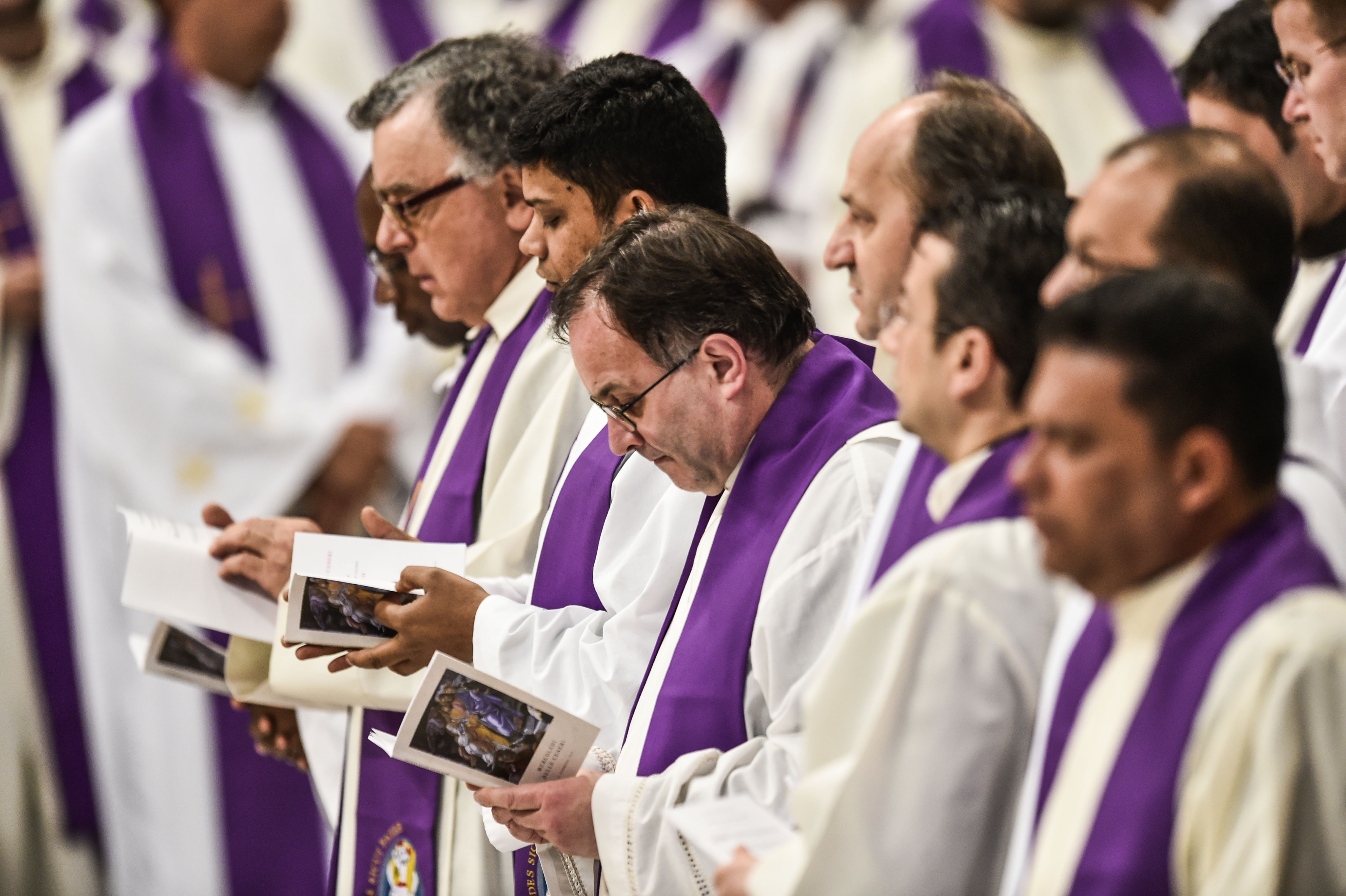Jubilee
As of today, in all world dioceses, 1.142 missionaries of mercy will become special envoys, ambassadors of the Jubilee. They have been entrusted with the special faculty to pardon even those sins reserved to the Holy See. Lent begins with the “mandate” they have been conferred by the Pope at Mass, with the rite of the benediction and imposition of the Ashes, to be “signs and instruments of God’s forgiveness”. In the Basilica of St. Peter, before the caskets containing the remains of St. Pio of Pietrelcina and St. Leopold Mandic. Three temptations, three remedies, a threefold mission: to help their brothers and sisters to “open the doors of their heart, overcome shame, and not flee from the light.” Lent as a time of healthy “pruning”, for “the cleansing of one’s heart and one’s life.”

Thus begins the Lenten period of Pope Francis in this extraordinary Holy Year dedicated to mercy. In the first “decentralized” Jubilee in the history of the Church, Francis concelebrated Ash Wednesday Mass in St. Peter’s Basilica with over 700 Missionaries of Mercy – on a total of 1 142 – called to be “signs and instruments of God’s forgiveness” also through their faculty of pardoning even those sins reserved to the Holy See. Two colours dominated the scene: the white vestments donated by the Pope to the special “ambassadors” of the Jubilee, to be as special envoys worldwide, and the purple stoles of the liturgical time of preparation for Easter. Along the central nave of the basilica, a few minutes before 5 in the afternoon, the concelebrants joined the bishops and the cardinals before the Altar of the Chair, the glass coffins containing the remains of the two great confessors nominated by Francis as symbol of the Jubilee, St. Pio of Pietrelcina and St. Leopold Mandic. Two invitations led the homily: “To be reconciled with God” and “To return to me with your whole heart.” Coming through the “open door” that is Christ. Lent is a time of “pruning”, for the “cleansing of one’s heart and life.”
“The first step in the Christian journey is to recognize that we are in need of mercy “, were the Pope’s opening words. “It comes in through the open door that is Christ”, but “alone we are not able. To do good we need forgiveness.” “God is greater than our hearts”: “He conquers sin and raises us from our miseries, if we entrust them to him.”
“There is the temptation to bold the locks of our soul “, “to be ashamed to open the secret door of the heart”, along with the danger “to walk away from the door.” These are three “barriers that close the doors of the heart”, the Pope warned at the beginning of Lent.
“To lock up the doors”, the Pope said, means “to live with sin, minimizing it, always justifying oneself, thinking we are no worse than others.” But in this way, “we bolt the locks of the soul, and we remain closed within, prisoners of evil.” The second barrier “is to be ashamed to open the secret door of the heart.” “Shame is a good symptom – was the Pope’s encouragement – because it shows that we want to break away from evil; but we must never turn it into fear or dread.” Finally, “the third danger is to walk away from the door: this happens when we dwell on our miseries, when we brood over them continually, and sink into the darkest recesses of the soul. Then we become even more familiar with the sadness we don’t want, we grow discouraged, and are weaker in the face of temptations.”
“Help people to open the doors of their hearts, to overcome shame and not flee from the light”, is the threefold task entrusted by the Pope to the missionaries of mercy. ” May your hands bless and lift up your brothers and sisters with paternity; that through you the gaze and the hands of the Father might rest on His sons and daughters and heal their wounds!”
Francis is realistic and has the typical Christian fondness for the concreteness of life; he knows that “the mystery of sin” comes about “when we have distanced ourselves from God, from others, and from ourselves.” He also knows “how difficult it is to love others, instead of thinking ill of them”, how much “it costs us to do our own true good, while we are attracted and seduced by so many material realities that fade away, and in the end, leave us impoverished.” It’s the everlasting paradox of the believer suspended between “the history of sin” and “the history of salvation.”
But the remedy does exist. Prayer, charity and fasting are “three medicines that heal from sin”: prayer that “shortens the distance created by sin”, almsgiving “to overcome estrangement against others”, fasting, penance “to free ourselves from dependence on what is transient, and to learn to be more sensitive and merciful.” In a word, the Pope’s message is an invitation to acts of “simplicity and sharing.”
“To take something away from our table and from our goods, to rediscover the true good of freedom.”
Lent is a time of beneficial “pruning back” of falsehood, worldliness, indifference. Overcoming hypocrisy requires “coherence and authenticity.” The purpose is not “to think that everything is well if I am well” but to understand that “what counts is not approval, seeking success or consensus but the cleansing of one’s heart and life.” There is only one Christian identity, the Pope underlined, and that is: “the love that serves, not the selfishness that is served.” The missionaries of mercy are with him. They are ready to follow him, to embark on their journey together and with Peter, to be “facilitators of a truly human encounter”, as stated in the Bull of Indiction of the Jubilee. The journey has begun, with its burden of “responsibilities.”